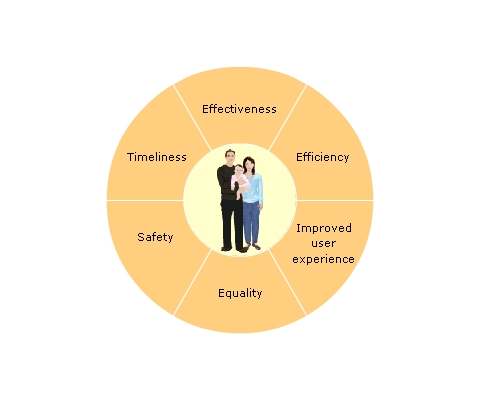Leadership, Monitoring and Quality: Part 2: In Practice


This session follows Part 1 (Healthy Child Programme Basics/Leadership, Monitoring and Quality: Part 1), and aims to primarily consider the main issues for health visitors when leading the Healthy Child Programme.
It will, however, be of interest to others delivering different aspects of the programme.
Learning Objectives
By the end of this session you will be able to:
- Describe accountability and delegation challenges related to leading the HCP
- Utilise a framework to guide delegation and decision making in specific contexts
- Utilise the policy, organisational, evidence base and legal context to influence leadership and delivery of the HCP
- Assess your performance against quality indicators
- Identify and make a plan to develop the skills you need to lead the HCP
All must play their part in ensuring that the health visitor is supported to deliver a high quality programme for their local children and families.
The session is specifically aimed at helping health visitors to consider the specific elements of their responsibilities with respect to leading the Healthy Child Programme (HCP). The session includes a number of exercises to promote learning and reflection. By completion of this session, the learner will have been able to identify their specific learning needs.
Dr Cheryll Adams is an independent adviser for health visiting and public health policy and practice. She was until recently a lead professional officer with the Community Practitioners’ and Health Visitor’s Association and formally held posts in health visiting and research. She is a Honorary Senior Visiting Lecturer at City University and in 2010 was one of the first six nurses to be inducted into the Nursing Times Nursing Hall of Fame.
Cheryll’s doctorate examined the role and training needs of health visitors to deliver mental health promotion in families. Her professional interests include: public health, mental health promotion, postnatal depression, child safety, research and practice development.
Cheryll was an author of the DH publication: Getting it Right for children and families: maximising the contribution of the health visiting team, (2009), is a member of the Healthy Child Programme Expert Group and has contributed to the design and development of the Curriculum Overview module for these online HCP materials.


- Anaesthesia Fundamentals | Physiology | Ventilatio...
- Posted By eIntegrity Healthcare e-Learning
- Posted Date: 2024-12-26
- Location:Online
- This session describes how and why ventilation and perfusion vary in the healthy lung. Causes of hypoxia, such as hypoventilation, increased dead space and shunt, are discussed to help the trainee explain and manage hypoxia clinically.
- Anaesthesia Fundamentals | Physiology | Pulmonary ...
- Posted By eIntegrity Healthcare e-Learning
- Posted Date: 2024-12-26
- Location:Online
- This session covers the measurement and clinical importance of lung volumes, including functional residual capacity and dead space. Information regarding the performance and interpretation of flow-volume loops is also included.
- Anaesthesia Fundamentals | Physiology | Co2 Carria...
- Posted By eIntegrity Healthcare e-Learning
- Posted Date: 2024-12-26
- Location:Online
- This session covers the physiology of how carbon dioxide is carried by blood, including its conversion into bicarbonate ions and the role of the red blood cell and haemoglobin in this process. The session also describes how buffers work, and the fundament
- Anaesthesia Fundamentals | Physiology | Function o...
- Posted By eIntegrity Healthcare e-Learning
- Posted Date: 2024-12-26
- Location:Online
- This session focusses on the function of haemoglobin in oxygen (O2) carriage from the lungs to other tissues where cells are supplied with the O2 required for oxidative phosphorylation in the mitochondria. We will cover the structure
- Anaesthesia Fundamentals | Physiology | Gaseous Ex...
- Posted By eIntegrity Healthcare e-Learning
- Posted Date: 2024-12-26
- Location:Online
- This session will introduce you to the physiological effects of altitude and the adaptations that occur with acclimatization. It also introduces the pathology and physiology of high pressure and decompression.







